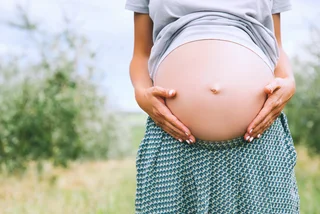2021 was one of the most turbulent years in recent Czech history. The pandemic and subsequent lockdown caused untold damage to national health as well as significant economic pain. The general election in early October meanwhile resulted in a change of government with potentially far-reaching consequences for the future of the country.
In 2022, Covid will continue to wreak havoc on everyday life, while more political changes are afoot. Campaigning will begin for the Czech presidential election to be held in early 2023, with Miloš Zeman to depart as his second term comes to an end.
A third of the upper house of the Czech Parliament, the Senate, will be elected in October, most likely at the same time as municipal elections in which the leaders of Czech cities, including Prague, will be chosen. On July 1, the Czech Republic takes over the EU Presidency.
Along with these major events, various changes to everyday life are also coming this year which everyone living in the Czech Republic should be aware of. Here’s the lowdown on what’s new in 2022.
Changes for drivers
- From Jan. 1, police officers can demand payment on the spot if a vehicle’s owner has not paid a previously imposed fine, clamping the vehicle, or removing its license plate to keep it off the road.
- Illegal parking in disabled parking spots will newly be punishable with a two-point deduction from driving licenses. Caregivers, however, will be allowed to park in no-parking zones.
- The required distance for passing bikes on the road has increased to 1.5 meters, except in areas with a 30 km speed limit, where a distance of only 1 meter is permissible.
- Drivers will soon be able to show "green card," proof of compulsory insurance payment electronically via mobile phone display. The Ministry of Finance is finalizing the procedure with the police.
Employment
- The basic tax rebate increases by CZK 3,000 to CZK 30,840 in January meaning employees should get an additional CZK 250 per month.
- Czech minimum wage has increased CZK 1,000 to a gross income of CZK 16,200 per month.
- Travel expenses for domestic business trips will rise significantly in 2022 and visits to nine foreign countries, including France, Hungary, Romania, Croatia, and Lichtenstein will require employers to pay higher meal allowances. Employees who drive can expense more on car travel due to the higher cost of fuel.
- Self-employed people will be subject to higher social insurance deposits (minimum CZK 2,841 per month) and health insurance payments (minimum CZK 2,627). Health insurance takes effect in January, whereas social insurance payment rates only rise in the month when you submit your tax return for 2021.
Banking and finance
- This year an amendment takes effect allowing documents that previously only existed in physical forms, such as permanent residence permits, to be kept in the general population register. As a result, banks with the necessary accreditation will be able to issue a so-called "bank identity" to foreigners who possess an identification document issued by the Czech Republic.
- Two bank mergers take place this year. Equa bank has been acquired by Raiffeisenbank; its customers won't experience any changes in their day-to-day banking until the fall, however. An Air Bank and Moneta Money Bank merger was approved by shareholders in December and now awaits approval from the authorities.
- The Czech National Bank is taking outdated banknotes out of circulation. From July 2022 CZK 100 notes from 1995 and 1997, CZK 200 notes from 1996 and 1998, CZK 500 notes from 1995 and 1997, CZK 1,000 from 1996, and CZK 2,000 notes from 1996 and 1999 can be exchanged until the end of June 2024 at any bank with a cash registry.
- Following the Czech National Bank's increases to base interest rates to combat spiraling inflation, mortgage rates provided by banks are increasing. At the end of 2021, banks including ČSOB and Česká spořitelna raised rates for mortgage loans, a trend expected to continue in 2022.
- Pensions will keep pace with changes in the cost of living. The average old-age pension will increase by CZK 505 per month, with the government adding an extra bonus of CZK 300 per month for all.
Family matters
- Paternity leave will be extended from one to two weeks in 2022 while the period during which the benefit can be used is extended in cases where an infant is hospitalized during the first six weeks of life.
- Artificial insemination will be covered by insurance for women up to the age of 40 (previously 39). The government will also cover egg freezing for oncology patients.
- The female “ová” suffix will no longer be required for Czech women. Until now, only foreigners in the Czech Republic, Czech women with permanent residency or dual nationality in another country, or foreign husbands were allowed to take a masculine surname.
- Tax rebates for a second child will increase from CZK 19,404 to 22,320 per year, for a third child from CZK 24,204 to 27,840. The discount for one child remains CZK 15,204.
- Deductions for školka (kindergarten) are based on Czech minimum wage. Up to CZK 15,200 can be deducted from taxes for 2021, while in 2022 with the rise of the minimum wage you can deduct CZK 16,200 when doing taxes for this year.
Consumer protection
- The new Energy Act, which took effect on January 1, requires energy suppliers to inform customers directly of any price changes. The act also introduces a register of energy supply intermediaries and prohibits the conclusion of energy contracts for more than three years.
- From January, the calculation for housing allowance takes into account housing costs as well the cost of solid fuels. The changes are a response to the increased cost of living resulting from inflation.
- A new law in effect from January (with a six-month transitional period) will prohibit companies from cold-calling those who did not give prior consent. Only companies with a contractual relationship with a customer will be able to call.
- From September 1, use of a solid fuel boiler purchased before the year 2000, or emissions class 1 or 2 boilers which release significantly more pollutants than modern boilers, will be prohibited. The regulation aims to ensure safe boilers are being used.












 Reading time: 4 minutes
Reading time: 4 minutes 






























